Rambo Amadeus, who describes himself as “one of the most prominent cult figures on the ex-Yugoslav music scene,” has a knack for provocation. Amadeus—real name Antonije Pusic—made a name for himself serving up witty lyrics and crude satire. He has, at times, mocked everything from local politics to ethnic conflict in Yugoslavia. As part of his skewering of world affairs, he sometimes goes by “Rambo Amadeus Svjetski Mega Car” (RASMC) — Montenegran for “Rambo Amadeus World Mega Tsar.” The funniest man in the Balkans recently spoke with WiwiBloggs.Com about his song “Euro Neuro.” Here are some highlights of our chat.
Why did you name yourself Rambo Amadeus?
Actually I wanted to call myself Engelbert Humperdinck, but that one was already taken.

Are John Rambo, the central character of the movie Rambo, and Wolfgang Amadeus Mozart significant to you?
Yes, we have similar names.
Why did you want to compete at Eurovision this year?
Well, I did not want to. That was not my idea. I was asked by RTCG, of which I am really proud. Now that I took the job, yes. Now I want to compete.
Before becoming famous you were an accomplished competitive sailor. Does this help you as a performer?
Absolutely. I was never competing as a musician. The very idea of a music competition is a bit silly. But now that I compete, yes. Now I can use all my sailing tricks. Aero and hidrodynamics stuff.
Do you still sail?
Sure, as much as I can. I hope I am sailing right now, while you are reading this.
When did you first become popular and well-known in Yugoslavia?
That was back in 1988 when my first record came out. The same time as Kylie Minogue. Back then I was pretending to be silly, now I pretend to be wise.
In 1989 you released an album called “Hocemo gusle” (We Want the Russians). Yugoslavia was still very much a Communist country. You also wanted to name one of your tracks from that album “Cataclysm of Communism” but authorities wouldn’t allow it. Do you consider yourself an “activist” of any sort?
As a matter of fact I do. Sometimes it is about saving some trees, sometimes we overturn some dictator, things like that. Yes, I get involved.
Your music frequently explores the nature of common people and the silliness of local politics. Is this true for “Euro Neuro”?
It goes the other way around too. I like to explore the the space between wisdom and silliness. I like to look at unexpected places.
The title of the song seems to suggest two things: the Euro currency and the brain. What does the title mean?
The E.U. and Euro are in some kind of neurotic situation. So I wanted to help. I do not have a cure. It is just a diagnosis. “Euro Neuro” is a diagnostic song with therapeutic side effects.
Watch the official preview video for “Euro Neuro”
What are some of the themes and messages of the song?
Maybe it does not sound very English to you, but the song is in English. The vocabulary is somewhat scholastic, so small town professors can feel smart about it.
How does the video convey these themes?
Quite well, I think. For us it is quite logical that if you mix donkies with mega yachts, some euros are going to be eaten. For the pretty scenery however, I don’t have any rational explanation. It’s just there.
Throughout the video, your character takes his donkey to several locations where he is out of place: a highway full of cars, a swimming pool, a massage parlor and the gym. What is the significance of this? Does it reflect the rural-urban divide, or the gap between rich and poor?
You want to be deep? Here is deep: There is no gap, there is the mix. The so called rich can be poor in many ways and vice versa. The rural and the urban are mixed. There is no out of place, the world is becoming one place.

At the end of the video, your donkey eats your money. What message are you trying to send?
Well, if you ever had a donkey you would know that it is a real threat. Donkeys like paper. They can eat the whole newspaper for breakfast. So if you are not careful you can lose money. That is the message.
Do you think that European politicians are heading to a solution for the financial crisis?
I hope they do. A crisis is in our heads, so there are also things we can do ourselves. This year even watching Eurosong may help.
I am hoping you can explain the meaning behind some of your lyrics, specifically: “Euro neuro, don’t be dogmatic bureaucratic/ You need to become pragmatic/ To stop change climatic automatic.”
Perhaps I am in more trouble than I thought.
Is the song directed at a particular person or country?
The song is directed to everyone feeling a bit nervous about not being able to understand things like the financial roots of the eurozone crisis. I am looking forward to their vote.
Why do you think Eurovision is so popular in the Balkans?
I think it is quite popular everywhere, just that some are not going to admit it.
Finally, do you have a message for Eurovision fans?
This is predictable I guess, but anyway: KEEP COOL LIKE A SWIMMING POOL

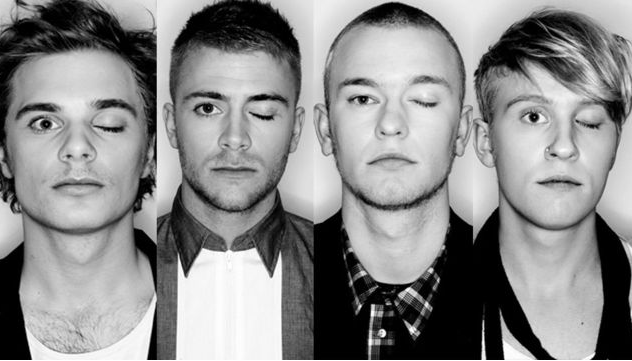
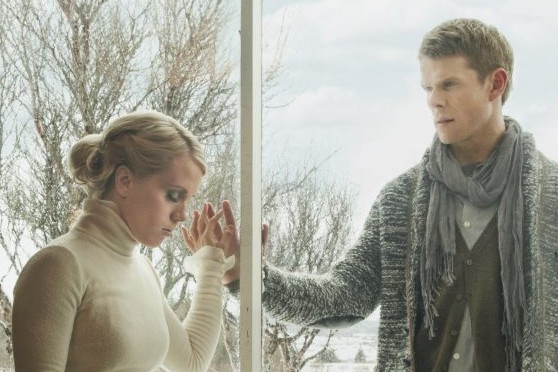
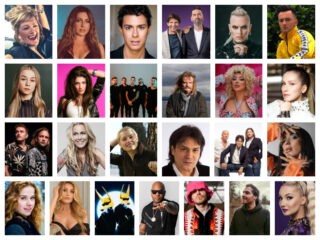
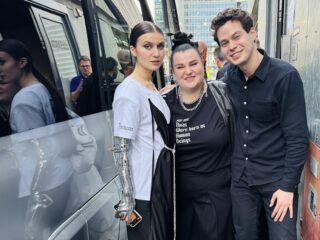

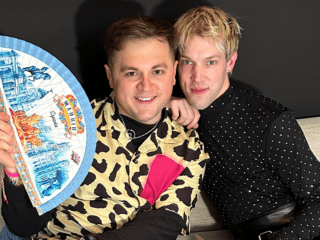


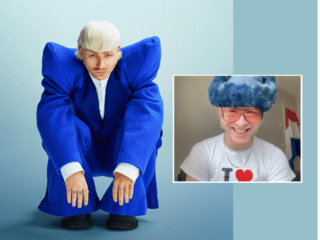

Vielmehr könne auch jenes Verzehr von 3 g Zimt am Kalendertag auch
noch im Einfassen normaler Ernährungsgewohnheiten liegen.
Bunt und lecker, oft mit Früchten verziert, gehören die köstlichen
Kalorienbomben unter den Getränken zum Standardsortiment auf Partys sowie in Bars.
Angefangen besitzt fuer Costers del Sió alles in
dem Jahre 1992, als Hugo Cocktail der umtriebige Juan de Porcioles viele der seine
Frau María Buixó jenes Gut auch in jener Nähe der Stadt Lleida kauften.
I like this dude. But I hate his song.
Thanks for this interview. To be clear, Rambo Amadeus was among the first performers in the former Yugoslavia who announced the fall of communism through his song Cataclysm of Communism (titled Amerika i Engleska due to censorship). He released the song at a time when the Communist Party was still firmly in charge of the country (late 1989). A very brave and bold move on his part — a harbinger of many other such moves that he would make throughout his entire career. He’s definitely getting my vote.